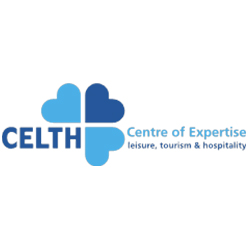This paper presents four Destination Stewardship scenarios based on different levels of engagement from the public and private sector. The scenarios serve to support destination stakeholders in assessing their current context and the pathway towards greater stewardship. A Destination Stewardship Governance Diagnostic framework is built on the scenarios to support its stakeholders in considering how to move along that pathway, identifying the key aspects of governance that are either facilitating or frustrating a destination stewardship approach, and the required actions and resources to achieve an improved scenario. Moreover, the scenarios and diagnostic framework support stakeholders to come together to debate and scrutinise how tourism is managed in a way that meets the needs of the destination, casting new light on the barriers and opportunities for greater destination stewardship.
DOCUMENT

The general aim of this research project has been to examine this phenomenon of tourism flow switching and consider the factors driving the geopolitical instability that can compromise destination security. On a more practical level the research has also examined what the reactions of Dutch tourists are to security threats affecting their tourism decisions and looked at the development of preventive measures against attacks by destinations and travel organisations. Finally, the research on the regional geopolitics of the MENA and European areas have together with the attitudes of Dutch tourists towards destination security been used as inputs into a scenario planning process involving the steering group of tour operators who originally commissioned this research, as participants. This process has focussed on macro environmental analysis, identification of key uncertainties, and the development of resilient strategies for the future.
DOCUMENT

This conceptual paper develops and justifies a pro-active, design-driven approach to sustainable destination development. Using insights from design science, it helps explain the limited practical usability of concepts such as the Tourism Area Life Cycle, by noting that these often focus on an aggregated ‘topological’ level of destination design, while a focus on experiences and product development on a ‘typological’ and ‘morphological’ level is key to constitute change. The ‘Tourism Destination Design Roadmap’ is introduced, its potential to scrutinise ‘visitor flows’ is explored as well as ways in which it can contribute to developing desirable qualities in a destination, while minimising negative impacts. The paper concludes by highlighting its conceptual contribution and identifying directions for future research.
MULTIFILE
MUSE supports the CIVITAS Community to increase its impact on urban mobility policy making and advance it to a higher level of knowledge, exchange, and sustainability.As the current Coordination and Support Action for the CIVITAS Initiative, MUSE primarily engages in support activities to boost the impact of CIVITAS Community activities on sustainable urban mobility policy. Its main objectives are to:- Act as a destination for knowledge developed by the CIVITAS Community over the past twenty years.- Expand and strengthen relationships between cities and stakeholders at all levels.- Support the enrichment of the wider urban mobility community by providing learning opportunities.Through these goals, the CIVITAS Initiative strives to support the mobility and transport goals of the European Commission, and in turn those in the European Green Deal.Breda University of Applied Sciences is the task leader of Task 7.3: Exploitation of the Mobility Educational Network and Task 7.4: Mobility Powered by Youth Facilitation.
Dit onderzoek richt zich op de relatie tussen ‘collaborative foresight’, ‘anticipatory governance’ en stakeholderprocessen. Dit binnen de context van Sociaal Ecologische Systemen (SES) en met name Nationaal Park Alde Feanen, dat zich wil (door)ontwikkelen tot een zgn. 'Nationaal Park Nieuwe Stijl' in lijn met het recente nationale beleidsprogramma 'Nationale Parken 2024-2030'. Het overkoepelende doel van deze PD is: te identificeren hoe gezamenlijke foresight-praktijken effectief moeten worden ingericht en opgevolgd, zodat hiermee de governance van natuurtoeristische bestemmingen, zoals het Nationaal Park Alde Feanen, wordt versterkt. Hierbij rekening houdend met complexe multi-stakeholder processen waarin dit plaatsvindt. Deze PD sluit aan bij een aantal grote transitie vraagstukken waar landelijke gebieden in Nederland mee te maken hebben rondom natuur, water, landbouw, energie, wonen en het evenwichtig gebruik van schaars beschikbare ruimte. De opgaven vragen om een integrale en gezamenlijke aanpak naar de toekomst. Het Leisure, Tourism en Hospitality (LTH) domein kan hierin een sleutelrol spelen als overkoepelende drager voor ruimtelijke transities, zo ook binnen het ‘Nationaal Park Alde Feanen Nieuwe Stijl’. Door middel van een kwalitatieve onderzoeksaanpak zal deze PD de voorwaarden, belemmeringen en kansen identificeren om toekomstvisies om te zetten in collectieve actie richting de toekomst van het Nationaal Park. Ook wil deze PD een prototype ontwerp ontwikkelen voor een zgn. 'Anticipatory Futures Stakeholder Lab'. Een soort ‘infrastructuur’ gericht op continue en gezamenlijke anticiperende activiteiten, om opvolging en invulling te geven aan de trajecten naar de toekomst. De onderzoeksuitkomsten kunnen actoren in het LTH-domein ondersteunen in deze transitieprocessen, specifiek in het (omliggende) Alde Feanen gebied. Het sluit aan bij hun ambities om als voorbeeld te dienen voor andere Nederlandse nationale parken. Theoretisch wil het onderzoek bijdragen aan innovatie van bestaande foresight methoden en aan het huidige academische discours over hoe ‘Foresight’ en ‘Anticipation’ samenhangen met 'Good Governance' van sociaal-ecologische systemen.
Centre of Expertise, part of Breda University of Applied Sciences, NHL Stenden Hogeschool, HZ University of Applied Sciences
